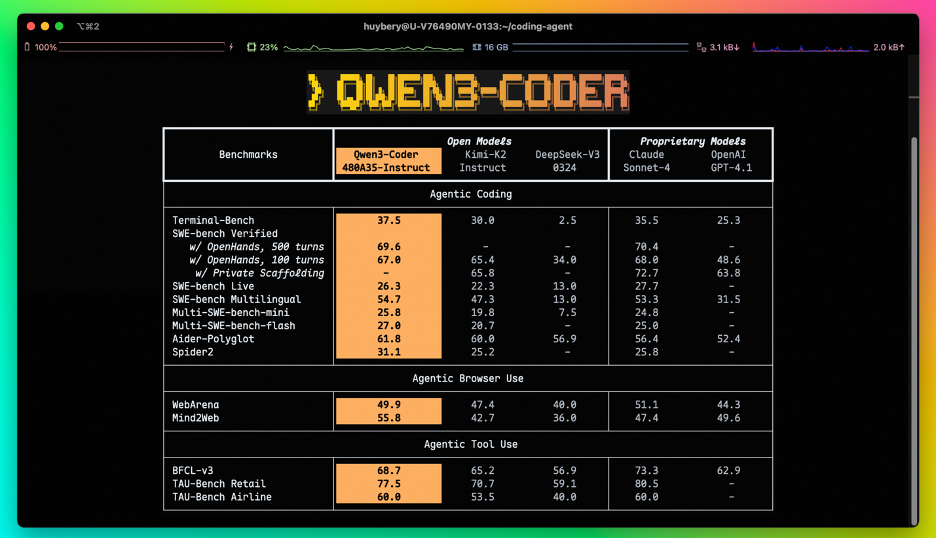Alibaba releases new Qwen3-Coder to assist in coding through agentic AI approach

Alibaba has released the new Qwen3-Coder AI model, designed to push the evolving space of autonomous software development.
Built on a Mixture-of-Experts (MoE) architecture, it is officially known as Qwen3-Coder-480B-A35B-Instruct, referencing its massive 480 billion parameters and 35 billion of which are activated per token during inference to maximize efficiency without compromising performance.
Targeted at handling real-world programming challenges, Qwen3-Coder is capable of multi-step coding tasks, including code generation, debugging across full codebases, and managing intricate development workflows.
It also supports a native 256K-token context window that can stretch up to 1 million tokens, giving it the ability to parse and operate over extensive repositories in a single pass.
Despite being an open source model, its competitive performance on benchmarks involving browser use, tool execution, and agentic programming puts it in contention with state-of-the-art proprietary systems.
Researchers at Alibaba combined large-scale code and text datasets with advanced post-training techniques such as long-horizon reinforcement learning (agent RL) to enable Qwen3-Coder to solve layered software problems through iterative tool interaction.
Alongside the model, Alibaba is also open-sourcing Qwen Code, a command-line interface (CLI) tool tailored to agentic coding. Developers can delegate tasks using natural language, aided by optimized prompts and interaction protocols that enhance integration with development workflows. Qwen3-Coder also supports interoperability with interfaces like Claude Code, expanding its utility across popular toolchains.
The model is now available on Hugging Face and GitHub, and can also be accessed through Qwen Chat or via Alibaba’s Model Studio API for scalable deployment.